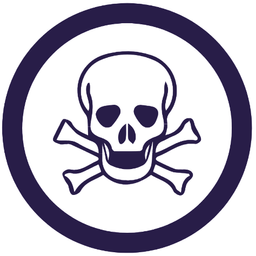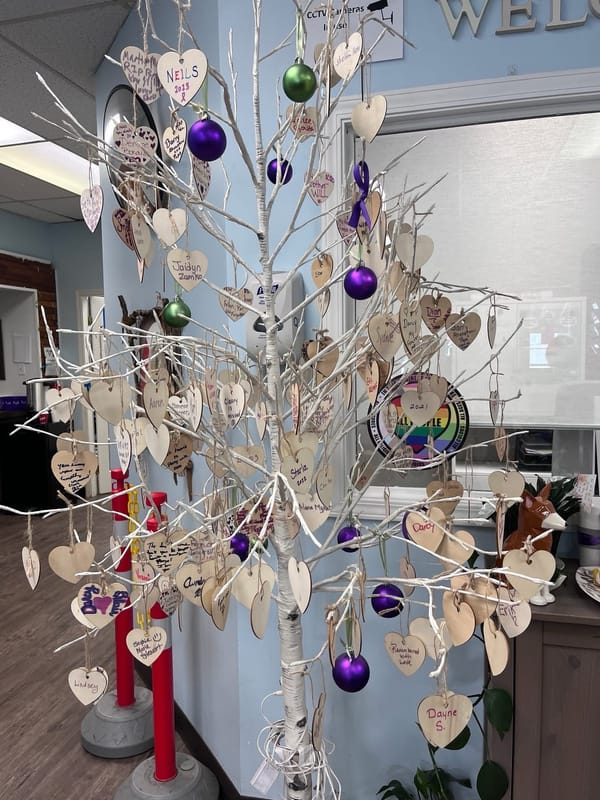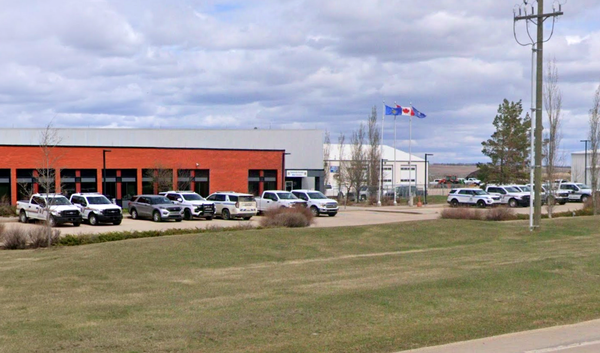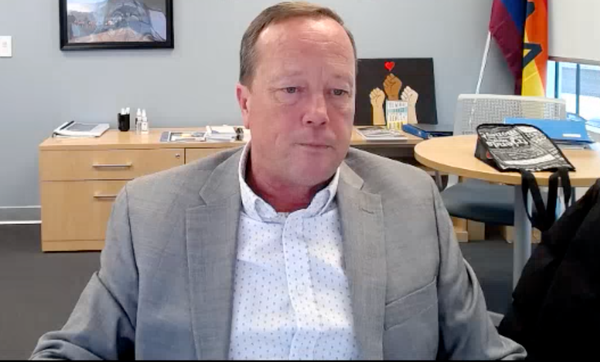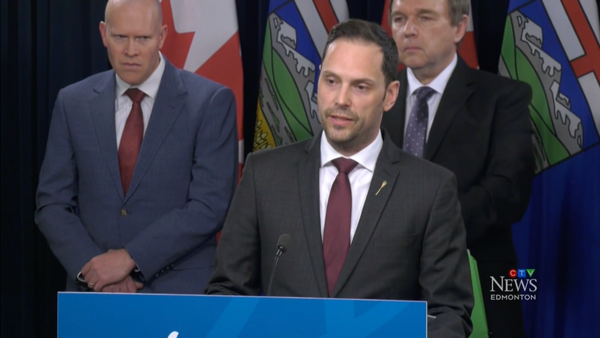"Coercion at its finest": Ministry mandating My Recovery Plan participation for recovery service access
The privately owned, sole-sourced app that collects personal health information of people entering recovery programs was launched as ‘voluntary’ to comply with Alberta privacy laws. But eight months later, it isn’t voluntary anymore.
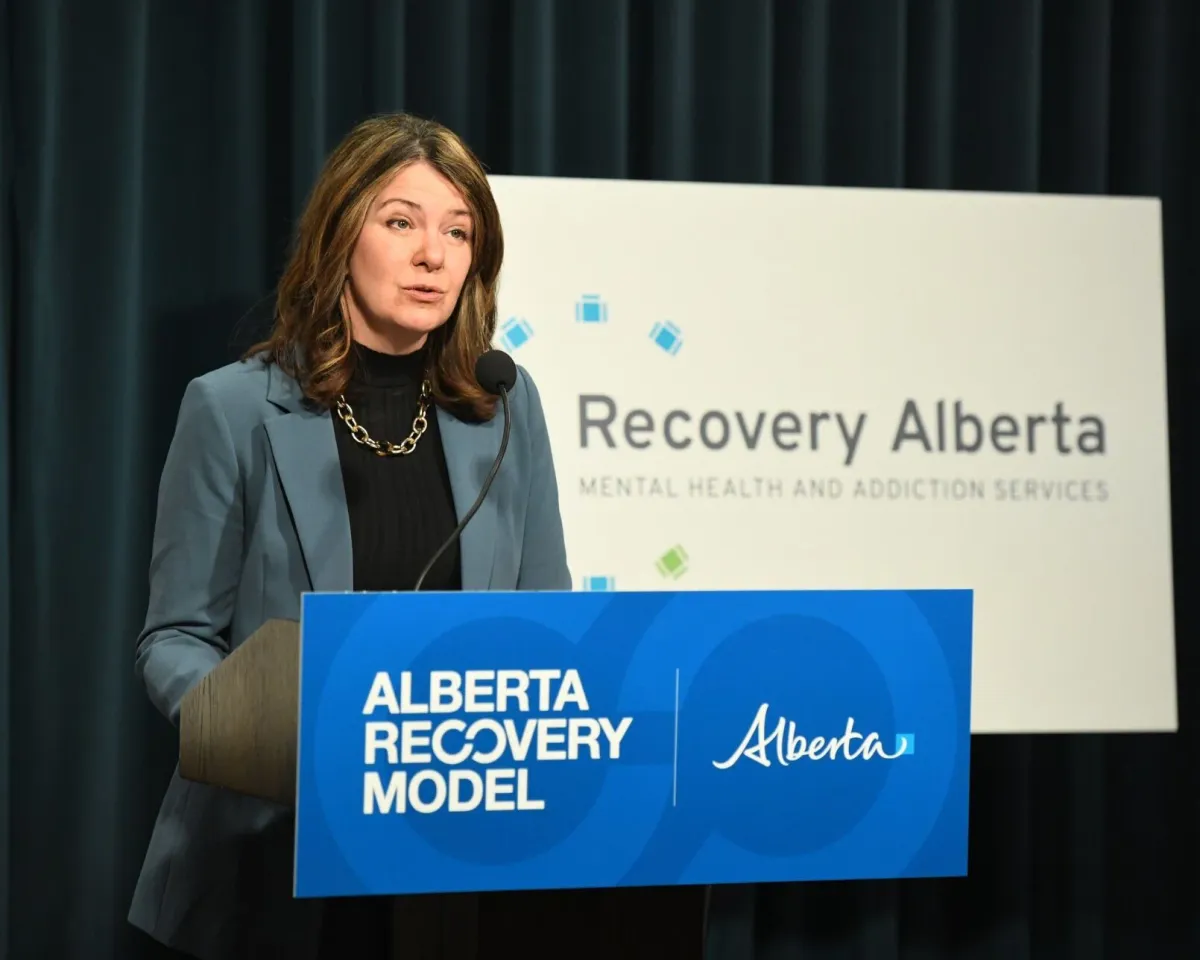
My Recovery Plan, a privately owned app that gathers personal health information of people in abstinence-based drug recovery programs, is now a requirement to access recovery programs at Calgary Drop-In and other providers across the province, according to program intake forms obtained by Drug Data Decoded.
The document, titled “Recovery Transition Program – External Referral Form,” is dated January 2025 and was prepared by the Calgary Drop-In's Recovery Oriented System of Care (ROSC) department. The form describes the Recovery Transition Program as an "abstinence-based program where clients can stay for up to 3 months while preparing for treatment," following an intake that includes a urine drug screen and week-long confinement to the unit.
A bullet point in the form affirms that “all clients are required to participate in My Recovery Plan while in the program.” (Emphasis theirs.) The document then indicates that clients should sign the "MRP consent form" and submit this with the referral.
The consent form is an AHS document titled “Consent to My Recovery Plan for Treatment,” with a section reading “I understand that My Recovery Plan is optional and I am giving my consent to use My Recovery Plan in my addiction treatment.”
The AHS form was at the centre of internal deliberations between AHS and the Ministry of Mental Health and Addiction from 2022 to 2024, previously detailed by Drug Data Decoded from hundreds of pages of freedom of information requests. These deliberations identified the need for a "privacy work around," prompting the creation of a Privacy Notice by AHS.

However, the Privacy Notice contradicts the new intake form at the DI by insisting that "MRP is a voluntary participation and care will not be refused. You can continue to obtain addiction-related health care services without providing information through MRP or having an MRP account."

The DI communications team did not respond to questions submitted on March 24 of whether the Alberta government had compelled the organization to require mandatory participation of its recovery clients in My Recovery Plan, or if accessing detox services also now requires participation.
The Ministry of Mental Health and Addiction was asked on March 25 if all recovery services are now required to mandate participation of clients in My Recovery Plan. The Ministry did not provide a response.
Nonetheless, Drug Data Decoded obtained the Recovery Alberta program evaluation of another service provider, which confirmed Recovery Alberta is pressuring service providers to ensure 100 per cent client participation in My Recovery Plan. The evaluation issued thinly veiled threats about the service provider's funding if it doesn't comply.
This matches a January 2024 email previously released by Drug Data Decoded that showed Deputy Minister of Mental Health and Addiction Evan Romanow urging recovery service providers to be “consistently using MRP with every client… [as] a requirement of your funding.” (Emphasis added.) Romanow then emphasized that "My Recovery Plan data will be watched very closely by the Ministry over the coming months for overall utilization rates.”
While pushing service providers to ensure the app's uptake among clients, the Ministry at that time did not cross the line into mandating client participation in My Recovery Plan as a condition of service access.
This was emphasized in a March 8, 2024 email circulated by the My Recovery Plan implementation team:

The publicly available intake form for Recovery Acres Edmonton, a long-term residential treatment program, continues to follow the AHS Privacy Notice, informing clients that "participation in My Recovery Plan is optional. If you choose not to participate, it will not affect your place on the Recovery Acres waitlist." This program is different than those offered by the DI and the anonymous provider.
By mandating participation in My Recovery Plan as a precondition to access programming at the DI and other detox or 'recovery transition' facilities, the government and AHS are undermining their own Privacy Notice, apparently created to sidestep the Health Information Act, just eight months after the app's province-wide launch.
“Some clients are not in a place to answer”
Calgary Drop-In (DI) is the city's largest shelter, with more than half of Calgary's roughly 2,000 shelter "beds" (more typically, thin mats crammed together on a floor). Documents previously detailed by Drug Data Decoded show how the My Recovery Plan implementation team was targeting shelters, prisons and supervised consumption sites for uptake of the app as "next steps" to follow its embedding in recovery services.
The documents did not clarify what function an abstinence-based recovery app would serve in a shelter for people struggling to survive houselessness. However, emails from September 2023 showed staff at the Calgary Drop-In detox questioning the My Recovery Plan implementation team's insistence that detox clients enrol in the app, asserting that "some clients are not in a place to answer" the intake questions.
Mandating participation in My Recovery Plan for clients lacking capacity to understand it likely violates every principle of informed consent, a cornerstone of healthcare. The AHS policy was previously summarized by Drug Data Decoded:
Informed consent must meet six conditions: the individual must have the capacity to make an informed decision and be given the chance to understand by asking questions, the information must be complete and specific, the procedure must be voluntary, and consent must be documented – this includes a signature by a witness who cannot be the health practitioner responsible for the intake.
A strategic shift
Management of the unregulated drug toxicity crisis at the DI and other agencies has been forced to change strategy in recent years, as the Alberta government's war on harm reduction has unfolded within the fault lines of public safety, housing and public health.
In September 2022, the DI withdrew its bid to open an overdose prevention site, owing in part to a surge in astroturf pushback, during a year in which shelter staff responded to 1,449 overdoses – over 100 per month. This annual total was then nearly matched in just the first four months of 2023.
In place of an overdose prevention site, the DI announced construction of detox and recovery transition facilities in February 2023, supported by millions in new provincial funding. Along with this, the DI would dispatch outreach teams to the Riverside district near the shelter, where overdoses frequently occur in public.
It is unclear if political pressure influenced these decisions by the DI. However, Drug Data Decoded previously showed that My Recovery Plan implementation was underway at the DI no later than November 2022 – within two months of the overdose prevention site cancellation and three months before the new service funding was announced.
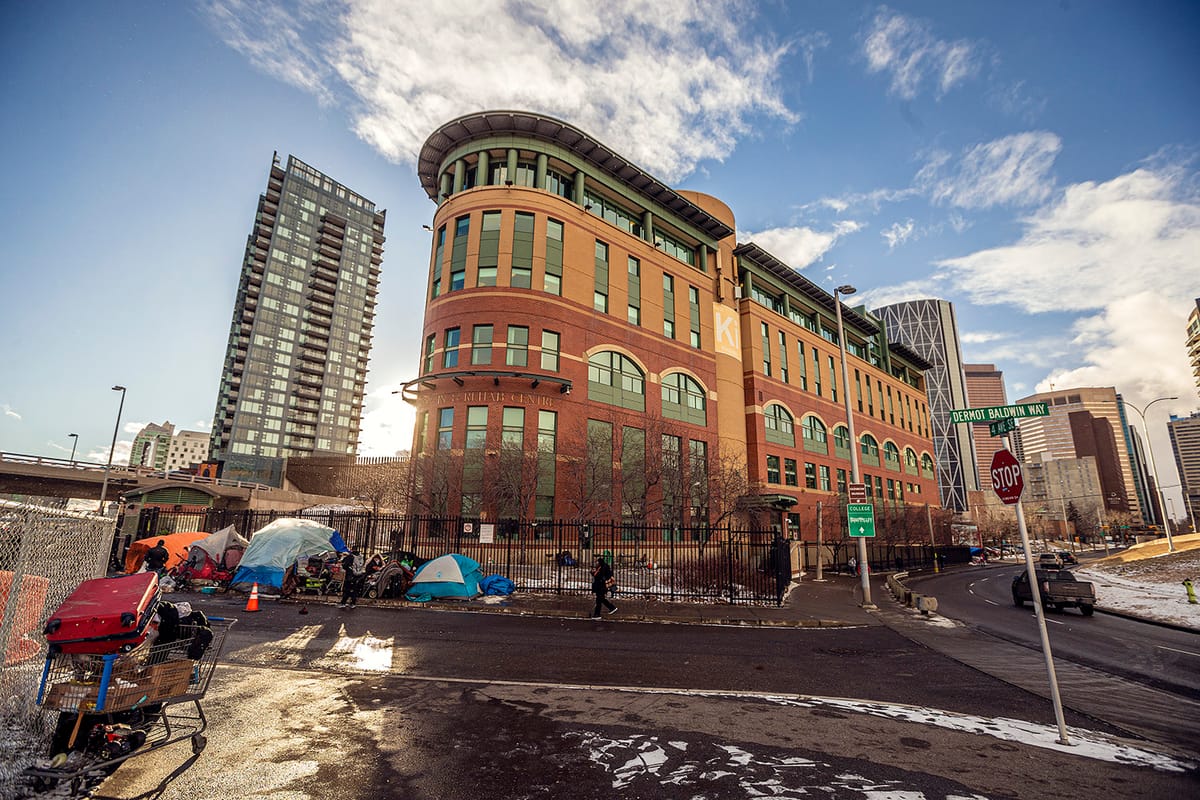
By June 2023, the new facilities were accepting patients. Despite the indications that patients accessing the facility were struggling to complete the intake assessment or meet conditions for informed consent, the DI persisted with My Recovery Plan implementation at the apparent urging of the app's implementation team.
Now, it appears, no participant can initiate services without completing the My Recovery Plan assessment. This could eliminate access for people with the most acute needs.
A professional system navigator, speaking on condition of anonymity, described the situation to Drug Data Decoded:
My clients have no autonomy over what information they disclose or who it gets shared with. If they want treatment, they have no choice but to sign their life away.
This is coercion at its finest. The folks I work with already live under draconian laws—told where to live, who they can see, where they can go. Now, if they want treatment—usually mandated, not a choice—they’re forced to share their personal information, whether they want to or not.
It’s dehumanizing.
The Alberta government has indicated that its incoming forced abstinence legislation will only target people with "severe drug addictions." However, excluding the highest-need patients from voluntary services according to their inability to complete the intake risks creating leverage for the government to justify their detainment for involuntary withdrawal and confinement.
Restricting service access to My Recovery Plan participants could also hold serious consequences for Indigenous clients attempting to access services. Indigenous-run service providers were alone in refusing to implement My Recovery Plan ahead of the March 2024 launch, after consultations to ensure the app's cultural safety were not followed through by the implementation team.
At the time, Kainai physician Esther Tailfeathers told APTN, “I think that this approach breaks OCAP principles because there’s data being collected on Indigenous people that they don’t know about and it’s being owned by private companies." (OCAP is Ownership, Control, Access and Possession of Information framework created by the First Nations Information Governance Centre for ensuring First Nations communities have control over data collected about them.)
In the same story, Métis physician Janelle Syring described the situation as "kind of like another round of residential schools where they are forcing people to do things and taking away their will and agency."
The organization that holds the operating contract for My Recovery Plan is Last Door Recovery Society. In late February, a former employee at Last Door, Adam Haber, was convicted of two counts of sexual assault. Members of Last Door's upper management allegedly attempted to silence people bringing forward their stories in 2023, and allegedly ignored reports from victims for over a decade.
Responding to the conviction, Last Door emphasized that it "was neither contacted nor involved in the proceedings of this case."
Last Door was recently revealed by Drug Data Decoded as the likely contract recipient for the incoming Calgary Recovery Community, although the Alberta government refused to confirm the recipient's identity in a freedom of information request. This plays out as procurement by various Alberta government ministries comes under increasing scrutiny.
For his part, Deputy Minister of Mental Health and Addiction Evan Romanow was recently quoted as being "freaked out" by potential corruption in his ministry. He allegedly stated in reference to the procurement process for recovery communities that the premier's former chief of staff, Marshall Smith, "was involved on that side, which you know, then makes me wonder about his integrity, or standing on anything else."
As Last Door prepares to enter Alberta's private recovery space with a large brick-and-mortar facility, the new requirement for mandatory participation in its privately owned app further erodes the rights of people rendered most vulnerable by the province's coercive drug strategy.
If you have additional information on this story, please get in touch at info@drugdatadecoded.ca, where media can also request documents related to this story.
This story was shared with Paid subscribers on March 25 and made publicly accessible on March 26.
Call for support: Know professionals or academics who might be interested in supporting this work? They are likely eligible to claim subscription costs for professional development – please encourage them to chip in.
Drug Data Decoded provides analysis using news sources, publicly available data sets and freedom of information submissions, from which the author draws reasonable opinions. The author is not a journalist.


